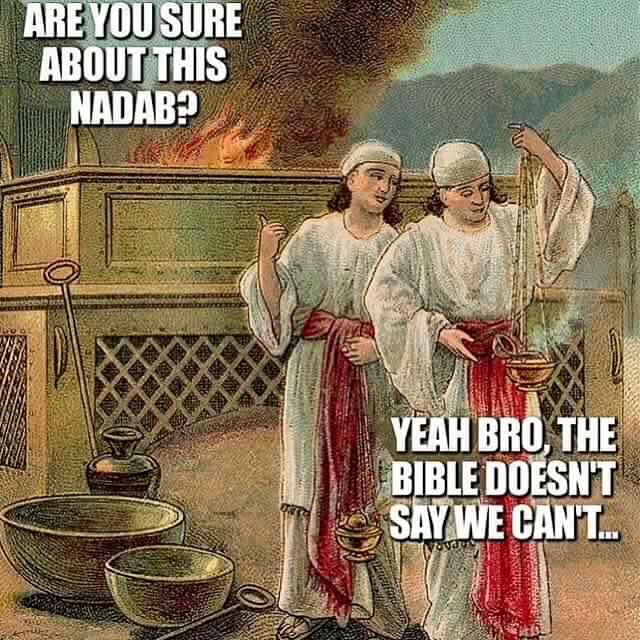That the threefold division is not neat and exact is acknowledged by the Confession. In paragraph 3, it is said that “God was pleased to give to the people of Israel ceremonial laws, containing several typical Ordinances, partly of worship…partly holding forth divers instructions of moral duties”. This means that just because there are ceremonial laws does not mean that they do not have moral aspects. In fact, the ceremonial laws were moral as long as they were binding on the people of Israel and had not yet been fulfilled in the Lord Jesus Christ. They were positive laws for only a limited time, unlike the Decalogue which is moral law for all time and rooted in the nature of God.
The Division Of The Law In The Old Testament
The Division in the Pentateuch
From the beginning, the Decalogue is distinguished from the other laws which God gave. Most of the Pentateuch contains laws given by God to Moses. Although the Pentateuch is often called the Law of Moses, this does not refer to the origination of the laws, but rather the way in which they were communicated to Israel. The Decalogue alone was spoken and delivered directly by God, all the other laws were mediated through Moses. The Ten Commandments were directly spoken by God to the people (Ex. 20:1; Deut. 4:33; 5:4-5, 22; 9:10). This already gives us the idea that there is some significance to the Decalogue in contrast to the other laws, for why would God only speak these Ten Commandments and not the other ones directly to Israel? This points us to their primacy over the other laws. In fact, Moses tells us the purpose of why God directly came and spoke the words to Israel, namely, “that the fear of him may be before you, that you may not sin” (Ex. 20:20). Obviously, this does not mean that they would not sin merely because of hearing the Law, they surely did. But it does increase their liability as they heard these words directly from the mouth of God and still rebelled against Him.
That only the Decalogue was written by the finger of God on tablets of stone shows their everlasting character (Ex. 24:12; 31:18; 32:15-16; Deut. 4:13; 5:22; 9:10). To be written in stone means that they are meant to survive and remain unchanged, unlike all the other laws which were communicated by God to Moses and written by the hand of Moses. This shows the non-temporary character of the Decalogue, unlike the ceremonial and judicial laws. This is even the case when we use the expression in our daily lives. Furthermore, the Decalogue was to be stored in the Ark of the Covenant showing its centrality to the Old Covenant, unlike all the other laws (Ex. 25:16; 40:20; Deut. 10:1-5; Heb. 9:4). It also formed the core of the Mosaic Covenant (Ex. 34:28; Deut. 4:13).
The Decalogue has a timeless character to it, unlike the other laws which were only for a particular time shadowing the sacrifice of Christ and thereby showing that they were temporary. The laws of the Decalogue are “obvious” and self-evident to man in general. If God exists, we are to worship Him and to ...










